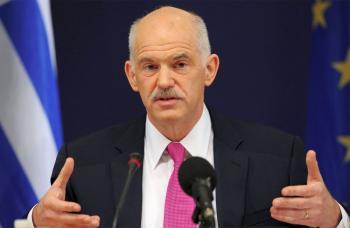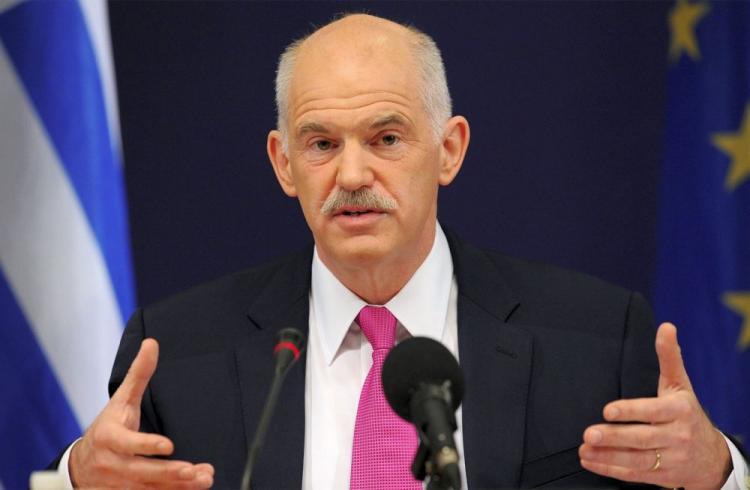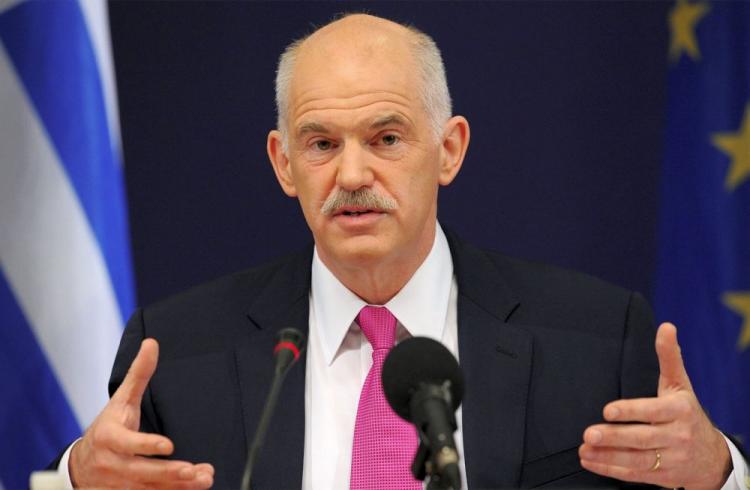EU Offers $40 Billion in Aid to Greece
Greece promised a lifeline in the form of a 16-country, 30 billion euro, loan package from EU members.

Greek Prime Minister George A. Papandreou speaks during a press conference at the European Union summit at the European Council headquarters on March 26 in Brussels. John Thys/AFP/Getty Images
|Updated:





